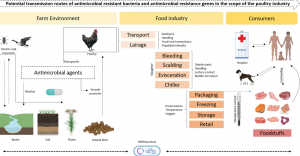Antimicrobial resistance (AMR) has been recommended as one of the biggest threats worldwide. Multiple reasons are responsible for this rapid increase in AMR cases. It includes self-medication, absence of diagnostic tools, dispensing of antibiotics without prescriptions, inappropriate prescribing of antimicrobials by doctors. Not only this, but the doctors’ decision is also impacted by patients’ demand for antibiotics, thus breaching good clinical practices. It would not be wrong to say that inappropriate attitudes and lack of knowledge towards the use of antibiotics are the root cause of the problem.
Various studies have reported that adequate training on antimicrobial prescribing and resistance provided to healthcare professionals can bring fruitful change. One such major strategy is the Antimicrobial Stewardship Program (ASP) which is used worldwide in the prevention and reduction of AMR. Since healthcare professionals are the future of any country, it becomes very important to check the knowledge, attitude, and practice of young minds. In this direction, a study was conducted at the University of Zambia using a structured questionnaire. The target population was undergraduate medical students. It was found that medical students had good knowledge, a positive attitude, and good practices towards antibiotic resistance. Overall the results of the study showed that 75% of students had better practices towards antibiotic resistance. Also, this difference was quite evident with increasing semesters. The present study has highlighted the role of education and human behavior in tackling the upcoming crisis of AMR. It seems that AMR can be reduced by improving the knowledge, attitude, and practices of healthcare providers on antibiotic use and resistance. Further, it is emphasized that antibiotic usage and prescribing must be incorporated into the curriculum of medical undergraduate students.
To learn more, visit the website of the International Journal of Basic & Clinical Pharmacology







